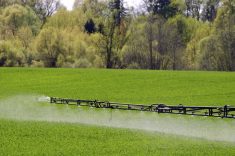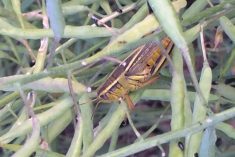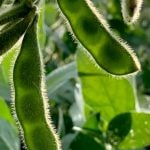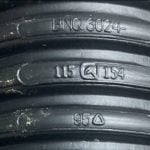Health Canada’s pesticide regulator proposes to allow continued registration for two members of the neonicotinoid family of pesticides, both of which are under heavy scrutiny for their effects on bees and other pollinators.
The Pest Management Regulatory Agency on Tuesday issued proposed decisions on clothianidin and thiamethoxam that would extend the products’ existing conditional registrations as seed treatments and foliar- and soil-applied pesticides in field crops, to the end of 2019.
Clothianidin, under its current conditional registration, is marketed in Canada as insecticides and seed treatments under brand names including Poncho, Prosper, Nipsit, Titan and Sepresto. Thiamethoxam’s conditional registration covers products such as Cruiser and Helix.
Read Also

Alberta Crop Report: Rains in the south, dryness in the north
Rain fell onto the southern half of Alberta last week, while hot and dry conditions persisted in the northern half, according to the province’s crop report released on July 18.
The agency’s proposed decision stems from the re-evaluations of neonic pesticides it announced in 2012, with an eye on the chemicals’ “potential risk to pollinators in light of international updates to the pollinator risk assessment framework.”
PMRA on Tuesday also announced proposed re-evaluation decisions for clothianidin and thiamethoxam based on its pollinator risk assessments.
For clothianidin, the proposed pollinator re-evaluation calls for the phase-out of its foliar application to orchard trees and strawberries and to municipal, industrial and residential turf sites. It also proposes to reduce pre-bloom applications for cucurbit vegetables (cucumbers, squash, et cetera) from two down to one.
The re-evaluation also calls for added “protective label instructions” for cereal crop uses of clothianidin.
For thiamethoxam, the proposed pollinator re-evaluation calls for the phase-out of foliar and soil applications to ornamental crops that would result in pollinator exposure; of soil application to berry crops, cucurbit crops and fruiting vegetables; and of foliar application to orchard trees.
Foliar application of thiamethoxam to legumes, outdoor fruiting vegetables and berry crops would no longer be permitted before or during bloom, PMRA said.
PMRA’s proposals are now up for a 90-day public comment period, running to March 19, 2018. The agency’s final decisions on the products are due to be published in late 2018.
Recent separate assessments of a third neonic, imidacloprid, found it to be turning up in waterways at levels harmful to aquatic insects, leading PMRA to propose a three- to five-year phase-out of all agricultural uses and a “majority of other outdoor uses” of the product.
The proposal for imidacloprid went through a 120-day public comment period ending in March this year, to be followed by a final PMRA decision on the use of imidacloprid in Canada late next year. PMRA said it also expects to publish a proposed decision on imidacloprid pollinator safety in March 2018.
Clothianidin and thiamethoxam have also been found to occur “frequently and at comparable levels to imidacloprid” in certain waterbodies in areas of intensive agriculture, PMRA said Tuesday.
Consultation is expected in July on proposed measures for clothianidin and thiamethoxam to protect aquatic life. Final decisions on such measures are expected to follow in January 2020.
“Decade of overuse”
The Ontario Beekeepers’ Association on Thursday ripped PMRA’s proposal to continue registration for clothianidin and thiamethoxam “against overwhelming scientific evidence showing acute and chronic effects on bees.”
PMRA’s decision, OBA said, also flies in the face of “the experience of Ontario beekeepers whose bees continue to suffer from a decade of overuse of neonicotinoids on soy, corn and winter wheat.”
Noting PMRA’s plans to call for new labelling on field crop seed treatments, related to reducing dust at planting, OBA said dust from planters represents “less than five per cent of the pesticide applied to seed.”
By focusing its attention to crop dust, OBA said, PMRA “perpetuates the myth that neonicotinoids could be safe for bees if applied properly at planting time.”
Ontario in 2015 moved to limit access to neonic-treated seed only to farmers “who can demonstrate they need protection from the pests targeted” by the products in question, OBA noted.
“Ontario beekeepers are hopeful that Ontario’s Class 12 legislation will allow farmers access to crop protection in a way that also protects our vital insect pollinators,” OBA president Jim Coneybeare said in the association’s release Thursday.
“The only group that could possibly benefit from PMRA’s decision are the manufacturers of these pesticides.” — AGCanada.com Network
















